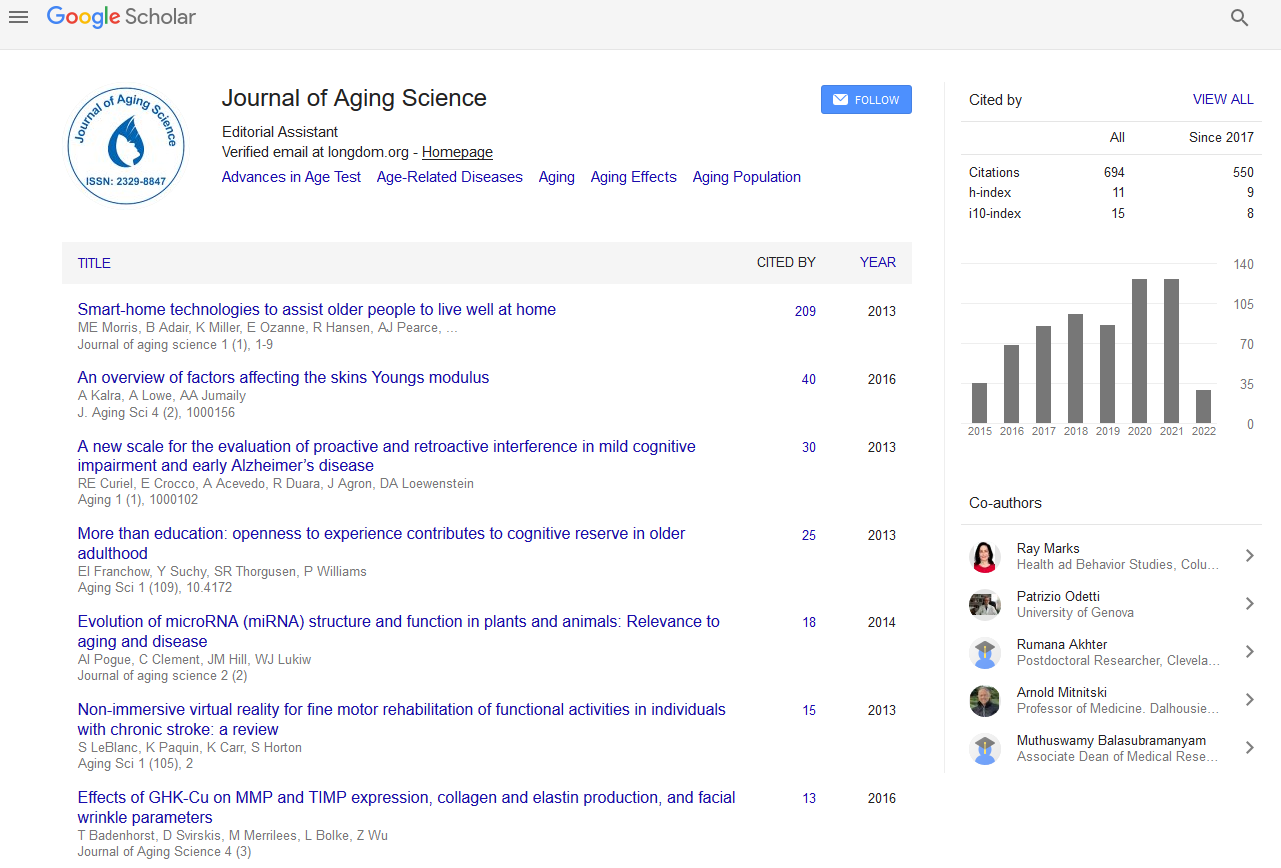PMC/PubMed Indexed Articles
Indexed In
- Open J Gate
- Academic Keys
- JournalTOCs
- ResearchBible
- RefSeek
- Hamdard University
- EBSCO A-Z
- OCLC- WorldCat
- Publons
- Geneva Foundation for Medical Education and Research
- Euro Pub
- Google Scholar
Useful Links
Share This Page
Journal Flyer

Open Access Journals
- Agri and Aquaculture
- Biochemistry
- Bioinformatics & Systems Biology
- Business & Management
- Chemistry
- Clinical Sciences
- Engineering
- Food & Nutrition
- General Science
- Genetics & Molecular Biology
- Immunology & Microbiology
- Medical Sciences
- Neuroscience & Psychology
- Nursing & Health Care
- Pharmaceutical Sciences
Abstract
Epigenetic Changes in Aging and Age-related Disease
David A Rowbotham, Erin A Marshall, Emily A Vucic, Jennifer Y Kennett, Wan L Lam and Victor D Martinez
The epigenome refers to the complete set of heritable chemical modifications made to DNA and histone proteins. Certainly, the most well characterized epigenetic mark is the covalent addition of a methyl group to a CpG dinucleotide site in the genome. The DNA methylome—a collection of methyl marks established during embryogenesis—creates a complex regulatory network involved in cell type differentiation, homeostasis and regulating gene expression in response to environmental stimuli and stress throughout life. Collectively, an increasing body of research supports the notion that over time, diverging methylomes may account for substantial phenotypic discordance in monozygotic-twins and explain disparate susceptibilities to age-related disease. We review this evidence and discuss how a greater insight into the mechanisms of age-related epigenetic dysregulation may inform strategies for molecular diagnostics and therapeutic intervention.


